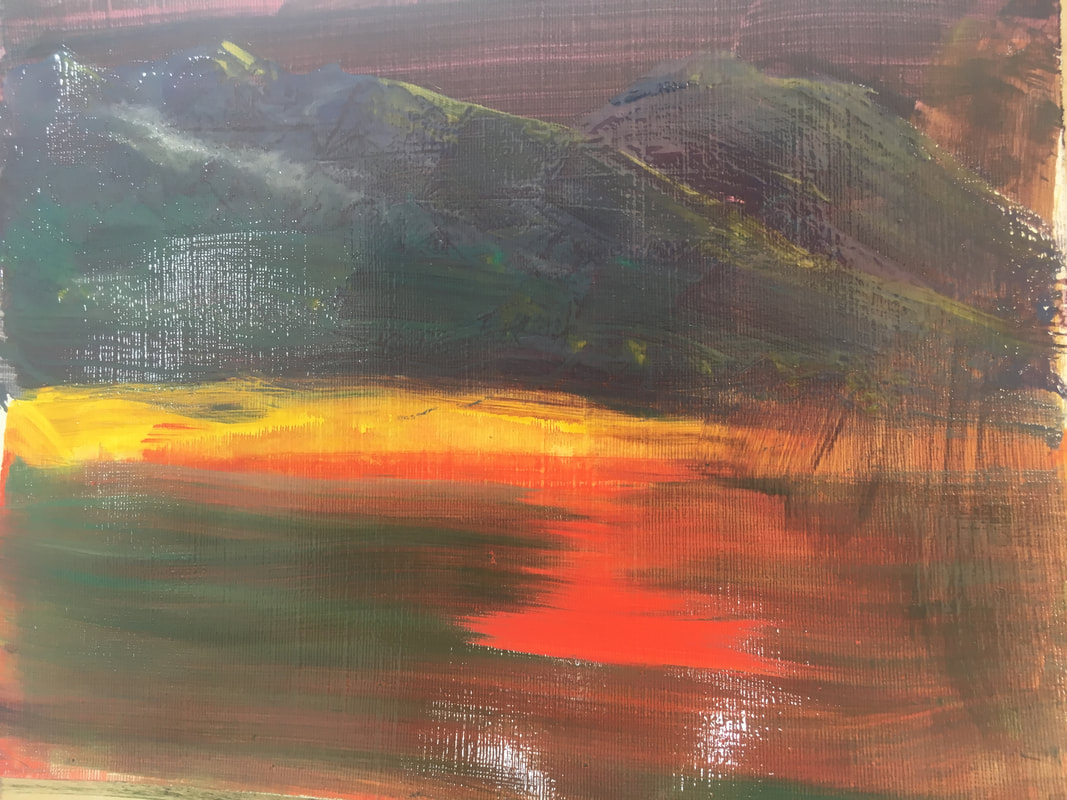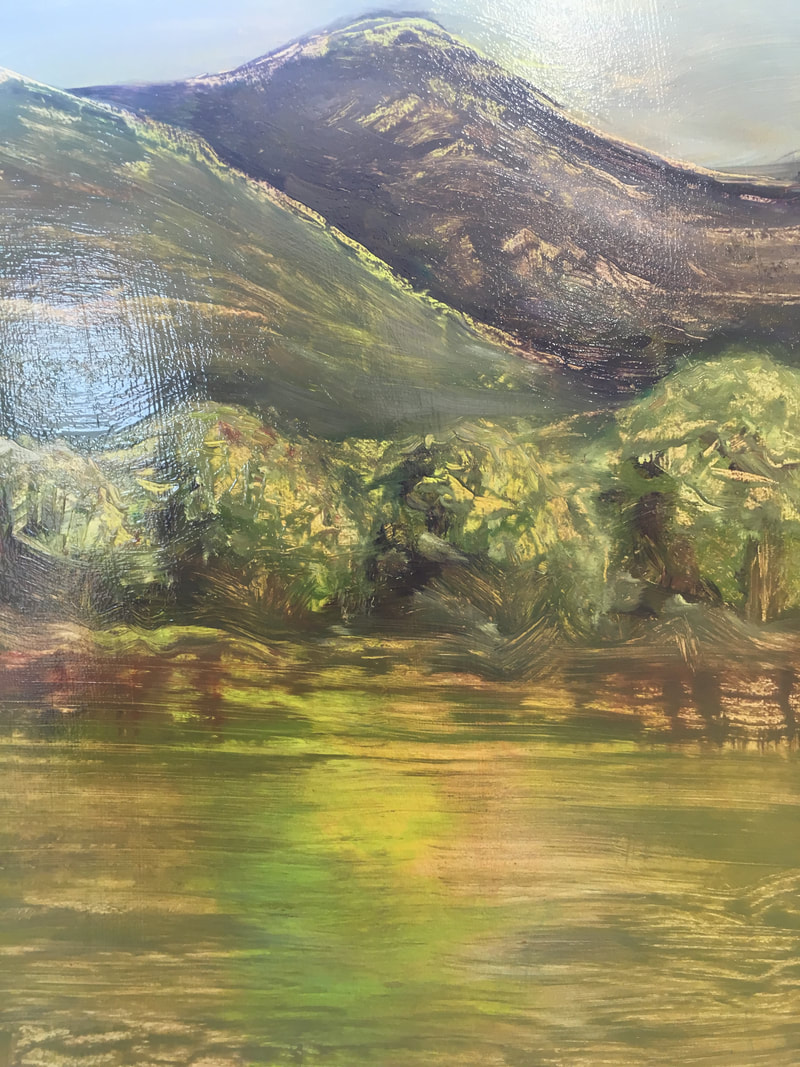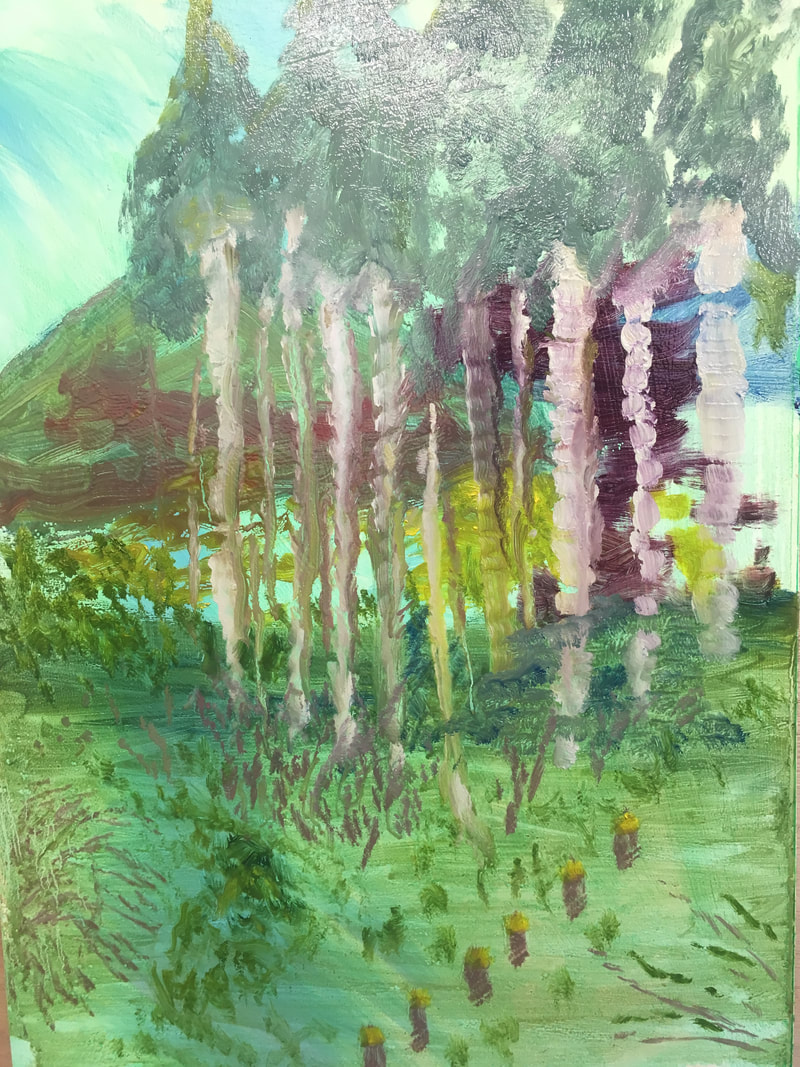|
I hope my cheesy title brings a smile to your face - I created it for my workshops inspired by Turner’s oil painting methods. These workshops were all about giving participants a chance to ooo and ahhh at great landscape paintings of the past, then allowing them space to streak hot oranges, reds and purples across their canvases, creating the sunsets of their dreams (I’ve included some examples of their work in this month’s blog). Looking back at Turner’s period, the age of Romanticism (roughly 1780-1850), it’s hard to see the facts clearly without getting swept up in the sensorial loveliness of the work of this era. Hence, I could barely contain myself whilst chatting away to Howard Hull, Director of Brantwood. You can still catch the radio interview here. There’s also still a couple of weeks left to get yourself to the ‘Incandescence - Turner in Venice’ exhibition at Brantwood. The word ‘cheesy’ is used to describe excess sentimentality, or unbridled emotion and lack of intellectual depth. The Romantics were often accused of being too sentimental about times gone by. I don’t think it was necessarily that. Rather, they were sensitive to the way that turning everyone into the cog of an industrial machine had, surprise surprise, somehow led to the creation of a grim existence for many in society. The poets, writers, artists and activists of this time spoke up, through their work and their actions, reminding folk that perhaps there were alternative ways of doing things. I think some of this thinking still goes on today. Last week, I attended Bivouac#3, a gathering of artists, and arts professionals hosted by Eden Arts. Honorary Research Fellow in Archaeology at Glasgow University, Gavin McGregor, spoke about how he was alive to the magic and myth surrounding historic sites. He suggested that it was okay to use our own imaginations to ponder what these sites might mean to us, even if our ideas might be ‘cheesy’. The stories we might then share, were just as important for us as humans, and members of communities, as the drier facts of our sometimes cog-like existence. Anyway...
Here’s a poem by William Butler Yeats. Although he wrote in the 20th century, he is often known as the last Romantic poet. Into the Twilight OUT-WORN heart, in a time out-worn, Come clear of the nets of wrong and right; Laugh, heart, again in the grey twilight, Sigh, heart, again in the dew of the morn. Your mother Eire is always young, Dew ever shining and twilight grey; Though hope fall from you and love decay, Burning in fires of a slanderous tongue. Come, heart, where hill is heaped upon hill: For there the mystical brotherhood Of sun and moon and hollow and wood And river and stream work out their will; And God stands winding His lonely horn, And time and the world are ever in flight; And love is less kind than the grey twilight, And hope is less dear than the dew of the morn.
1 Comment
|
Celia BurbushPursuing an understanding of what we need to exist in the world: how do we connect with others (and the wider world and its objects), what is our language. Archives
April 2023
Categories |
- Home
-
WORKS
- Maryport in Painting, 2023
- Co-research with Kirkgate communities, 2022
- story of we 2022
- Journey Portraits, 2022
- Light trails 2021
- In Open Spaces 2021
- Make it Now
- Lockdown portraits 2020
- How a Painting Speaks, 2018
- These Four Walls 2017
- Home is where the heart is 2017
- Dreaming of home 2016
- Life of a House, 2017
- Dialogue with E numbers, 2014
- Hour of the Star
- Film Archive
- News
- ABOUT




 RSS Feed
RSS Feed